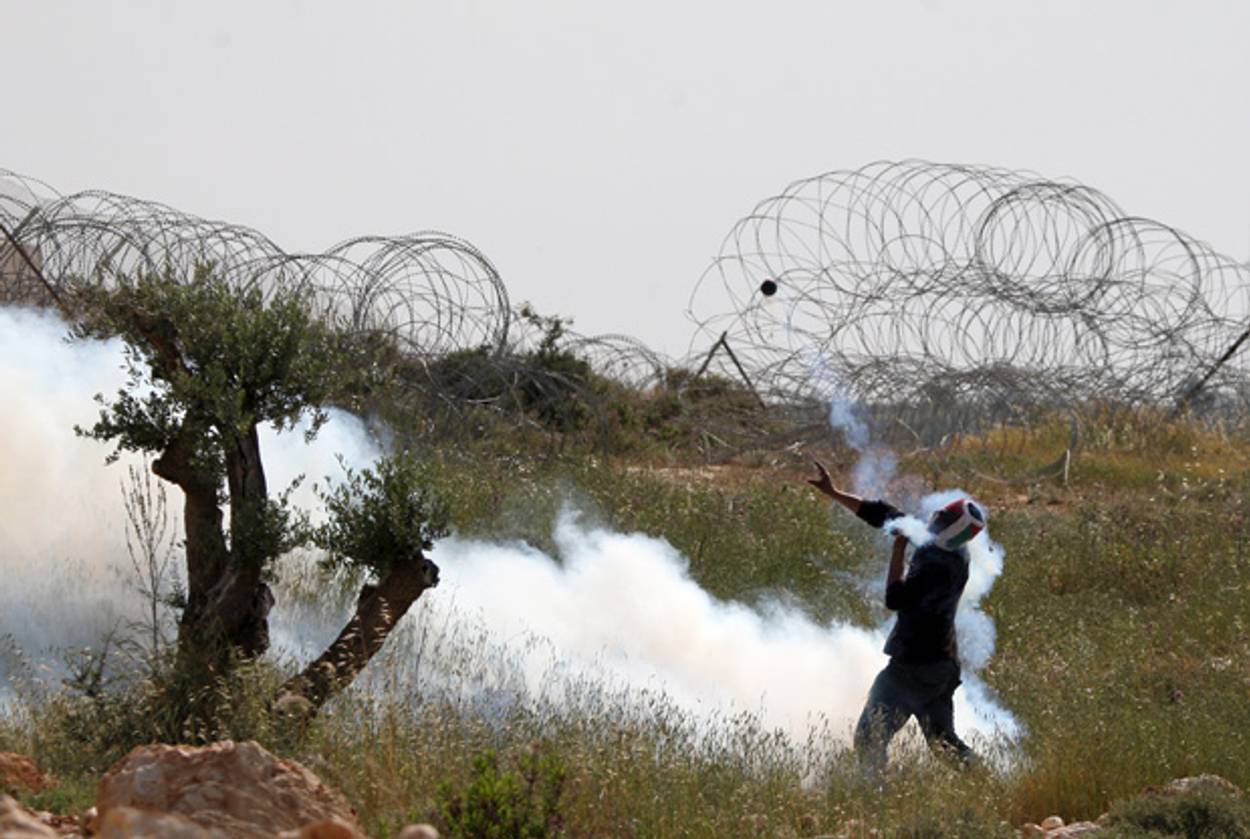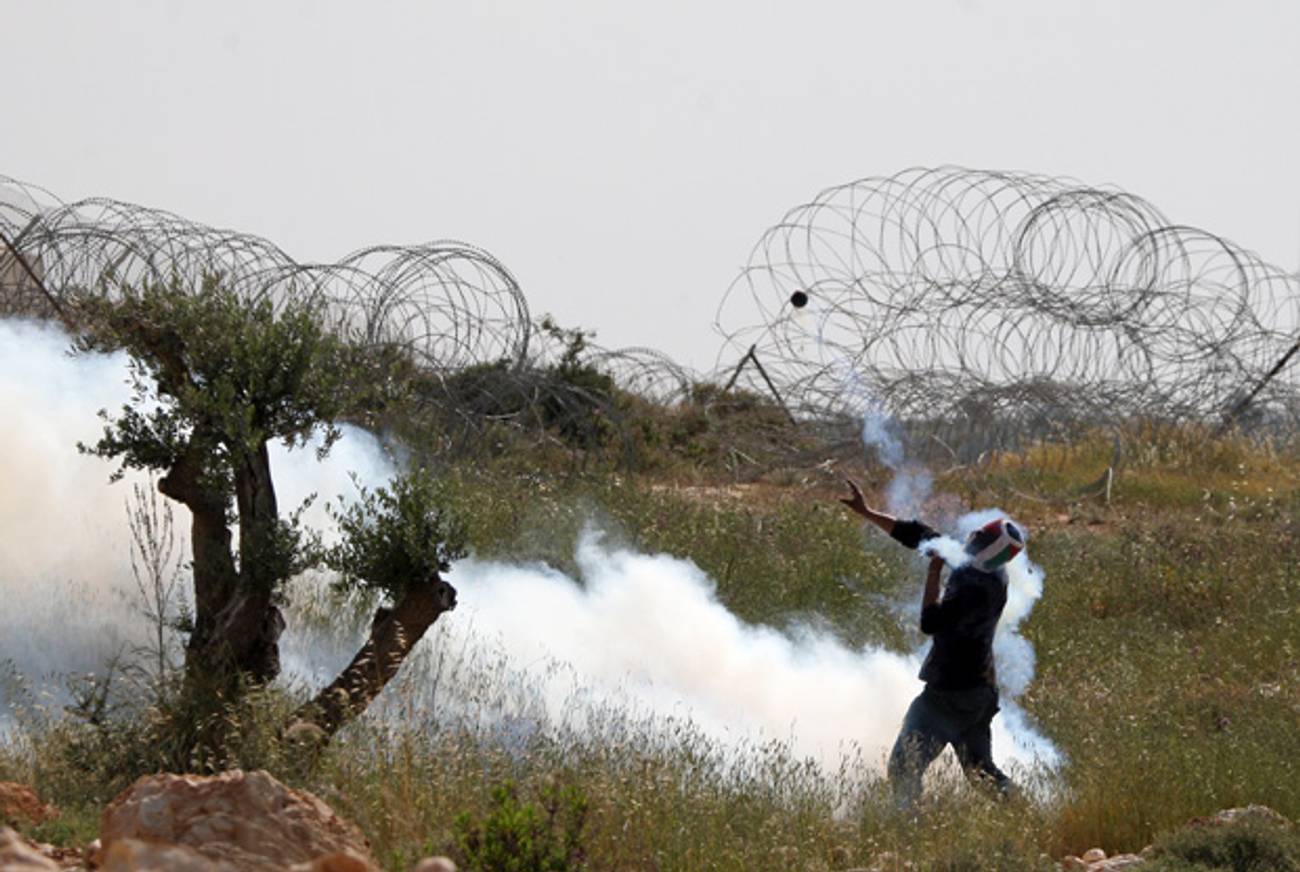Soldiers Testify They Posed as Violent Protesters
IDF ploy was to gin up violence, justify crackdown in West Bank village




It’s been revealed that the Israeli Prison Service’s elite commando force, codename Masada, has sent operatives to dress up as Palestinians and throw stones at Israel Defense Forces soldiers in order to justify escalations of violence at what are supposed to be non-violent, peaceful protests. During the trial of Israeli-Arab Knesset member Muhammad Baraka—who stands accused of obstructing an attempt by Israeli security forces to arrest Palestinian activists during a 2009 West Bank demonstration—Masada officers admitted in court that at least some of the violence attributed to Palestinian protestors was actually perpetrated by them and their men.
The demonstration in question took place in Bil’in, a West Bank village not far from Ramallah and fewer than three miles from the Green Line. In 2004, when Israel began erecting a security fence along the West Bank’s border (roughly), it ran the barrier right down the middle of the village, separating Bil’in from more than 60 percent of its farmland, its chief source of livelihood. The people of Bil’in were understandably angry, and grew livid when the confiscated land was swiftly dotted with cranes building homes and businesses for two neighboring Jewish settlements.
The people of Bil’in made a choice in how they reacted: they appealed to the High Court, which agreed with them. “We were not convinced that it is necessary for security-military reasons to retain the current route that passes on Bili’in’s lands,” wrote Chief Justice Dorit Beinish in 2007. The court ordered that maps be redrawn and the turf restored. The army deliberately dilly-dallied. The court scoffed, again ordering that lands be returned to the people of Bil’in right away. Again, nothing happened.
And so, the citizens of Bil’in took to non-violent resistance. A more reasonable response could not be conceived.
Testifying at Baraka’s trial, Masada’s commander and deputy commander revealed that they and their charges, dressed up as Palestinians, were deployed in order to assist the army in breaking down the demonstrations. To justify the tear gas and the arrests, what was otherwise a peaceful gathering had to be transformed into a riot. And so: some Israeli soldiers attacked other Israeli soldiers to give the army the excuse to arrest Palestinians protesting a move that Israel’s own supreme court deemed illegal. It is a bizarrely apt microcosm of the way in which the occupation endangers Israel and, in fact, its own soldiers.
Liel Leibovitz is editor-at-large for Tablet Magazine and a host of its weekly culture podcast Unorthodox and daily Talmud podcast Take One. He is the editor of Zionism: The Tablet Guide.